We can’t rule out a China invasion of Taiwan soon, says top US admiral Mike Gilday
Admiral Mike Gilday, chief of US naval operations, has raised the prospect of China invading the self-governing island as soon as the next few months.
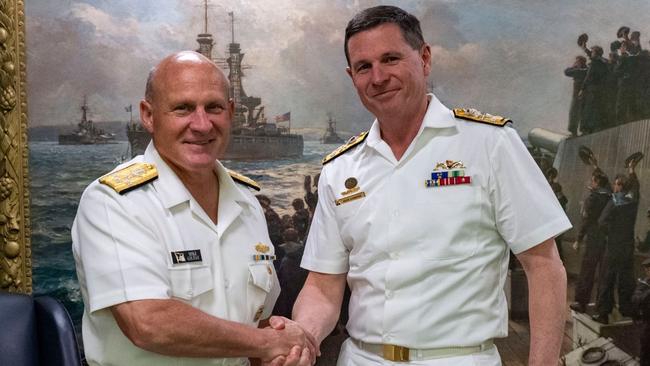
China could invade the self-governing island of Taiwan as soon as this year, a senior US naval commander has warned.
Mike Gilday, chief of US naval operations, raised the prospect of imminent war this week at a discussion in Washington hosted by the Atlantic Council.
Admiral Gilday was asked about official US assessments that China was building the capability to seize Taiwan by 2027.
“When we talk about the 2027 window … that has to be a 2022 window or potentially a 2023 window,” he said. “I can’t rule that out. I don’t mean at all to be alarmist by saying that. It’s just that we can’t wish that away.”
He was speaking after President Xi Jinping, 69, vowed to unify with the island in his opening speech to the communist party congress in Beijing on Sunday. “We insist on striving for the prospect of peaceful reunification with the greatest sincerity and maximum efforts,” Mr Xi said. “But we will never promise to give up the option to use force and we reserve the option to take all necessary measures.”
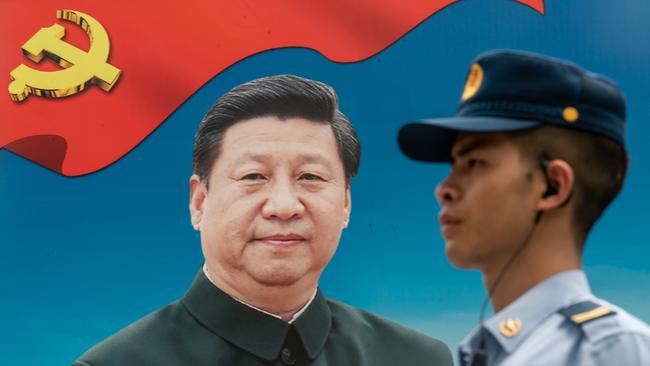
Beijing has long regarded the island of 23 million people as part of China but Taiwan considers itself separate from the mainland.
US Secretary of State Antony Blinken said this week that China was pursuing unification with Taiwan on a “much faster timeline” by altering the status quo and resorting to coercive, rather than peaceful, means.
Admiral Gilday said: “It’s not just what President Xi says but it’s how the Chinese behave. And what we’ve seen over the past 20 years is that they have delivered on every promise they’ve made earlier than they said they were going to deliver on it.”
The US has a security pact with Taiwan to supply it with enough hardware to defend itself. Japan’s Nikkei newspaper has reported that Washington is considering a plan to produce weapons jointly with Taiwan.
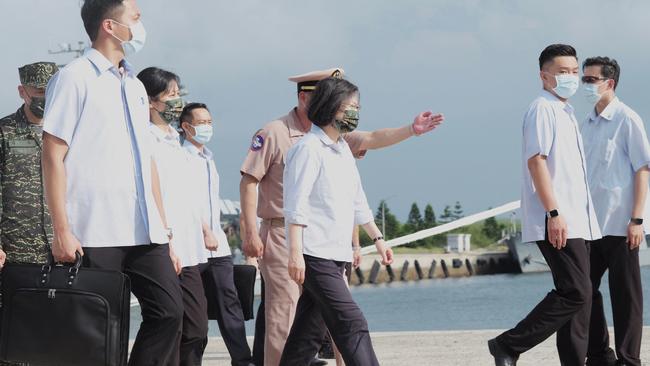
After almost a decade in power Mr Xi, who is almost certain to be awarded another five-year term, has changed the terms of China’s engagement with the world. Its previous leaders had limited time and attention for countries beyond their immediate neighbourhood. Their concern was China – its economic growth, the lives of its people and the stability that followed. For most foreign governments, certainly those outside Asia, the relationship with Beijing was narrowly defined, apart from the occasional indignant statement about human rights in Tibet. This simplicity and certainty have come to an end under Mr Xi.
The world is having to deal with China on diplomatic, cultural, military and economic levels, leading to new alignments.
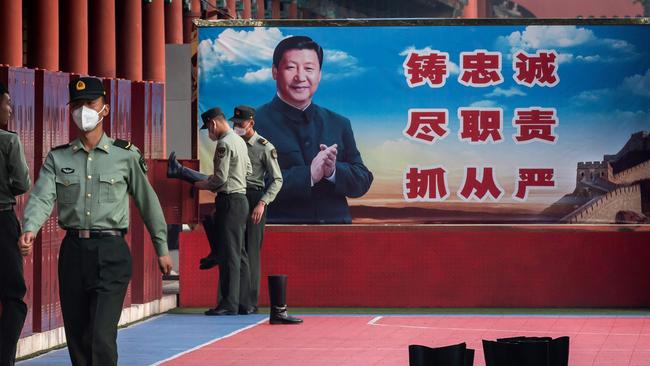
By one reckoning, China overtook the US to become the world’s largest economy in 2014. Its growing wealth is matched by unprecedented displays of confidence and assertiveness.
In March, China announced a defence budget this year of about $360bn), more than 5 per cent of its total government spending. Mr Xi has built bases on islets in the South China Sea and sent its navy far out into the Pacific.
Above all, there is Taiwan. After months of aggressive air exercises this northern summer, naval forces of the People’s Liberation Army manoeuvred closer than ever to the island, firing missiles over it in what many fear is preparation for an invasion.
The threat has drawn military forces into east Asia to an extent not seen since the Vietnam War in the early 1970s. The US, which has had bases in the region since the Second World War, has been defiantly sailing its warships past the Chinese bases in risky “freedom of navigation exercises”.
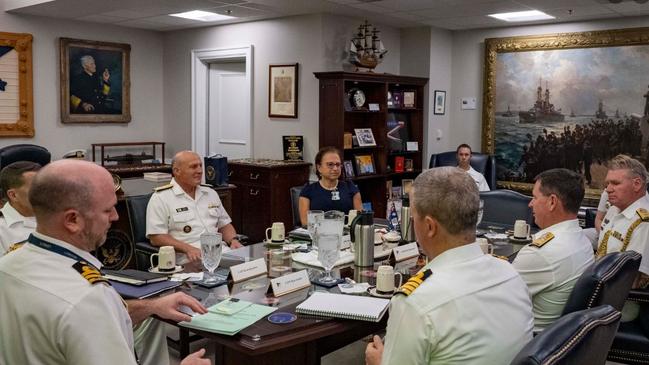
France and Germany have sent naval missions to Asia and the maiden voyage of Britain’s new aircraft carrier HMS Queen Elizabeth last year was to Japan.
Tokyo has responded to the pressure with profound policy changes and the commissioning of aircraft carriers. South Korea also has one on the way.
Japan’s ruling Liberal Democratic Party is considering acquiring a pre-emptive strike capability, with fighter jets or missiles that can take out enemy weapons on the ground. The country has joined the US, Australia and India in military exercises as part of the Quad, denounced in Beijing as “an anti-China front line … that reflects the Cold War mentality of the US”. Under the AUKUS pact, Britain and the US will supply nuclear submarines to Australia.
China has a few outspoken supporters, including Russia and the pariah regimes of Myanmar and North Korea. Many Asian countries face a dilemma as they try to avoid taking sides.
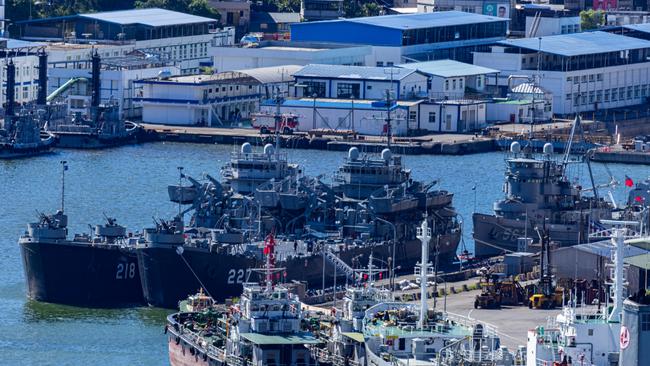
South Korea is a US ally but China is its biggest trading partner while Vietnam, also a one-party communist state, has a history of conflict with Beijing.
The Times
More Coverage
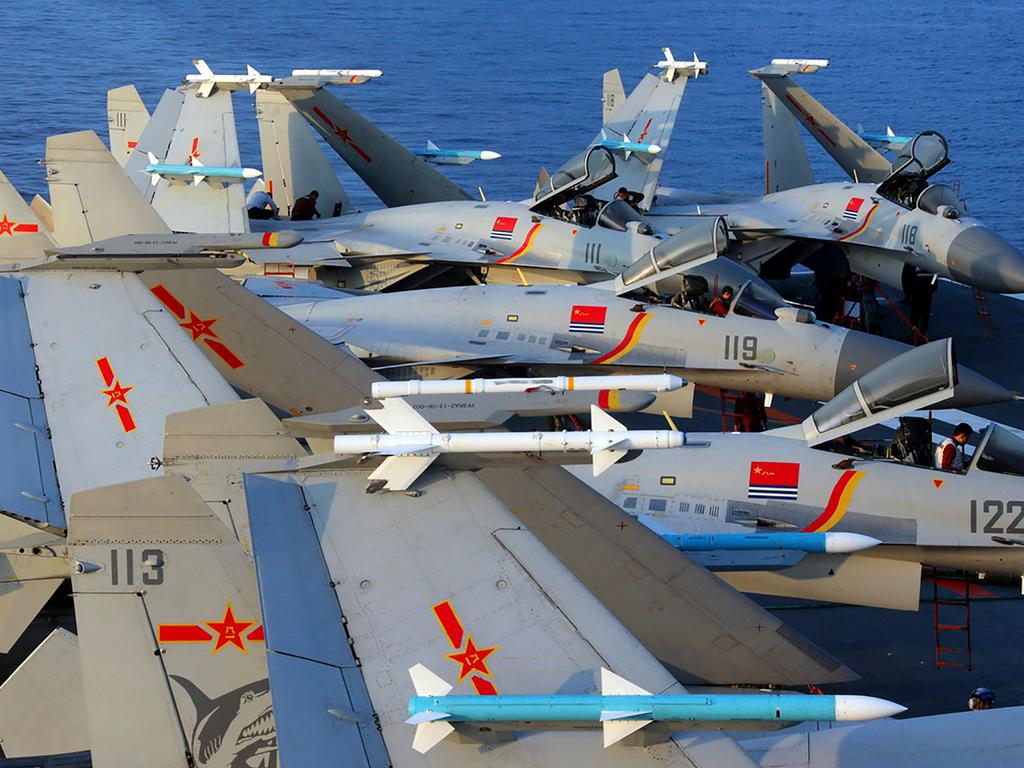 After almost a decade in power Mr Xi, who is almost certain to be awarded another five-year term, has changed the terms of China’s engagement with the world. Its previous leaders had limited time and attention for countries beyond their immediate neighbourhood. Their concern was China – its economic growth, the lives of its people and the stability that followed.
After almost a decade in power Mr Xi, who is almost certain to be awarded another five-year term, has changed the terms of China’s engagement with the world. Its previous leaders had limited time and attention for countries beyond their immediate neighbourhood. Their concern was China – its economic growth, the lives of its people and the stability that followed.


To join the conversation, please log in. Don't have an account? Register
Join the conversation, you are commenting as Logout